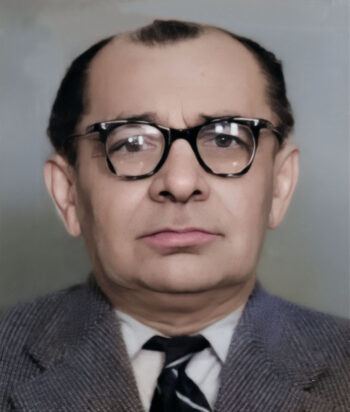Klehr, Josef

Josef Klehr (17 Oct. 1904 – 23 Aug. 1988), SS Oberscharführer at the end of the war, was an SS guard at the Buchenwald Camp from 1939 for a year. He then served as a medical orderly at the Dachau Camp, until he was transferred to Auschwitz in early 1941, where he fulfilled that same role. In addition to this duty, he also became the head of the camp’s disinfestation unit in 1943. As such, he organized and supervised delousing operations and disinfestation facilities operating with various methods (hot air, Zyklon B, later also DDT and microwave ovens).
During the Frankfurt Auschwitz show trial, Klehr was framed by former Auschwitz inmates, as well as by historians of the Auschwitz Museum, for the invented crime of lethal injections with phenol. He was also implicated as one of the main actors during the invented “first gassing” at Auschwitz. Klehr’s function as head of the camp’s disinfestation unit further exposed him to mendacious claims by vengeful witnesses of having supervised the use of Zyklon B for mass gassings.
Klehr was sentenced to life imprisonment for 475 counts of murder and 2,730 counts of assisting in murder. After almost 20 years of imprisonment, Klehr was interviewed by a German journalist fishing for confessions. He was successful, but only in general terms by getting Klehr to declare that “people were gassed.” No details were ever asked of him, and neither did he volunteer any (Demant 1979, p. 114).
How can anyone cope with having to spend the rest of one’s life in prison for a crime that never happened, when the entire world insists it did? In such a situation, where any relief is impossible, insisting on one’s innocence only leads to feelings of total senselessness, abandonment, desperation and depression, and ultimately suicide. Some went that route, such as Ilse Koch; but Klehr chose to accept the court-imposed “truth,” and to adjust his recollection accordingly.
(For more information, see the index entries on Klehr in Mattogno 2022f; 2016a, pp. 99f.)

You need to be a registered user, logged into your account, and your comment must comply with our Acceptable Use Policy, for your comment to get published. (Click here to log in or register.)